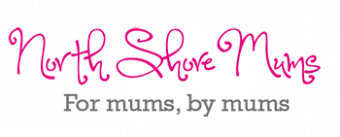You’ve taken time off from work or your career to take care of your family, recover from an illness, study or simply have a break.
You are now considering returning to the workforce, to either pick up where you left off or forge a new career path.
You’ve identified your ideal role or prospect and finally find the time amidst all the chaos of taking care of the kids and running the household to get started on your application.
You locate your resume and start looking through it… only to realise with utter dismay that it is out of date by at least a few years. Or that the last time you put it together, it was for a position in a completely different industry or profession!
You know it’s a competitive market and how important it is make a strong first impression with your resume and cover letter, but it’s been a while since you’ve had to do this and you feel a bit out of touch.
Where do you start and what do you do?
Resume and Cover Letter Drafting
Here are some essential tips on how to draft a resume and cover letter, so that they read easily and impressively, and at the same time capture the essence of who you are whilst tailoring it to the position you are applying for!
- Keep your language concise and relevant. Use industry terminology where appropriate. Do not ‘dumb’ your language down as remember that you are trying to impress your prospective employer with your knowledge and expertise.
- It is acceptable to promote yourself in the resume. This is no time to be modest as I can assure that you will probably be the only applicant who is! However make sure you can back this up, especially if you are asked to elaborate anything in an interview.
- You may need to have a different version of your resume for each role you apply for. This is called tailoring. However make sure that you send the correct version of your resume to the right role!
- Do a grammar and spell check. Even if you were or are the Spelling Bee Champion, these are easy to miss and there is no greater turn off to a prospective employer than spelling and grammatical mistakes littered throughout a resume.
- Make sure you have all the relevant supporting documentation accompanying the resume. Certain industries require an academic transcript and a verified copy generally will suffice. If your job application is not complete, you can be almost guaranteed that you will not be chased for the missing documents.
- Use bullet points as these are easy on the eyes and therefore easier to read. This also avoids the need to use whole sentences which can turn the resume into an essay! Only use whole sentences when describing your employer and your position.
- Keep your cover letter to one page in length.
- When writing about your personal qualities in your cover letter, use words like “I believe”, “I have been told”, or “The feedback I have received has been”, as you are now on subjective territory, and this will soften your statements.
- Towards the end of the cover letter, state that you are very interested in this opportunity and can be contacted by this email address or telephone number if they have any queries or wish to set up a meeting.
Now that you’ve nailed your resume and cover letter, what about the next stage?
Interview Preparation
You receive that highly anticipated phone call inviting you in for an interview! After the initial celebration, you start to panic as the last time you had to go for an interview, you also had a social life!
Here are some tips on how to make this the best interview you’ve ever done …
- Ensure that you have a copy of the resume you sent as part of your job application which the interviewers will have.
- Review the resume so that you become intimately familiar with it and can answer any questions or elaborate on any part of it. This includes any experience obtained in the distant past during your first employment including part-time and casual, as well as any extra-curricular activities or achievements.
- Research the organisation as much as you can from different sources including the company’s website which contains partner or director profiles, industry directories with the company’s rankings in different areas, articles or editorials published about the organization, and recent press announcements.
- Research the individuals in the relevant department you are interviewing for, as well as the interviewers themselves.
- Prepare your response for commonly asked questions that could potentially trip you up during an interview – such as
→ Why do you think you are suitable for the role, what do you think you can offer us or why should we offer you the job?
→ What are your weaknesses or areas in need of improvement?
→ Where do you see yourself in three, five or ten years time or what is your short/medium or long term goal?
→ What are your expectations regarding level of responsibility or your entry level eg. Consultant, Manager, Executive, Director etc?
→ What are your salary expectations?
→ Describe a difficult situation you have encountered and how you overcame it.
- Prepare a list of intelligent questions to ask and bring this list with you to the interview. Not only will this impress the interviewers that you have taken the time to prepare for the interview and give it some forethought, but it will also prove useful if some of your questions are answered as the interview progresses, in which case you can cross them out on your list to ensure you do not cover the same ground.
- First impressions are important, specifically presentation, tone of voice, and demeanour. Even if you are having a telephone interview, you should dress as if you are having an interview in person, as it will put you in the right frame of mind. Dress smartly and conservatively. It is better to be overdressed than underdressed. Personal grooming is important. Be confident in your tone of voice, and relaxed in your demeanour. You want to appear approachable and therefore do not be afraid to have a laugh with the interviewers. Remember that they are also assessing you for your personality fit.
- Always keep in mind what you have to offer the organisation and what your key attributes are. Where possible, try to work this into your responses.
- Many people find it difficult to talk in positive terms about themselves as they are afraid of coming across as being arrogant. You can avoid this by speaking about your exploits in a matter of fact manner or inject some humour to the discussion without coming across as being overly flippant. Another approach is to convey how you are perceived by others eg. ‘I have been told that I am …’; ‘The feedback I have received from my employer/clients is that I am …’; ‘During my last performance review, it was commented that I am…’; or ‘I am seen to be…’. You can soften your tone as well by prefacing your sentences with ‘I believe that I am…’ or ‘I consider/regard/see myself as…’. It is important to remember that you are your own and best advocate. If you do not represent yourself competently, no one else who is present will.
SPECIAL OFFER FOR NORTH SHORE MUMS

Mimi Fong – With Changes Comes Growth
Want to learn more? Contact Mimi by emailing [email protected], and she will send you a copy of:
- Guide to Resume and Cover Letter Drafting and
- Guide to Interview Preparation
… absolutely free! But hurry, this is limited to the first 10 North Shore Mums who email.
These are normally included as part of her Back To Work packages, and have been prepared and put together drawing from over 15 years of experience as an international recruiter and business owner, having mentored hundreds of career professionals through thousands of job applications and successful interviews.











